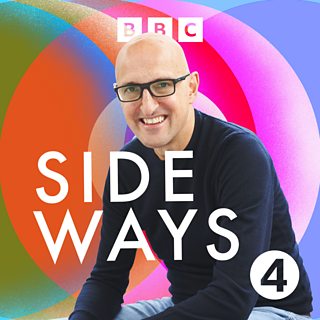Why are our first loves so unforgettable?
Falling in love for the first time is an experience many of us never forget. Details are often etched into our memories, from what we wore for a first date to the scent of their washing powder or a song that was playing on the radio.
In First Loves, an episode from the BBC Radio 4 podcast Sideways, Matthew Syed explores the impact our earliest romantic partnerships can still have on our lives decades later. He asks what makes our memories of first love so vivid, profound and enduring, and whether trying to rekindle long lost relationships is ever a good idea.
Here are a few fascinating things he discovers…
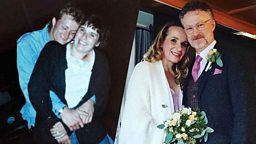
Our brains create especially strong memories in adolescence
Many people’s first experience of love happens in their teens, when our brains’ ability to record information is at its best. Catherine Loveday, Professor of Neuropsychology at the University of Westminster, explains that at this point, “we can form memories very, very clearly”.
At the same time, “the brain will record better anything that is highly emotional. So if something's happened for the first time, if it has a very high level of reward or even a high level of pain, our brain goes, ‘we need to remember that.’”
What’s more is that the more we recall our memories, the stronger they become. So emotive events can be some of our most powerful recollections. As Loveday explains, “every time we refer back to those experiences, we are reinforcing those neural pathways in the brain.”
Teenage hormones result in a ‘powerful chemical soup’
Whether it’s dizzying joy or crushing heartbreak, the emotions associated with first love can be incredibly intense. Loveday explains that, particularly in puberty, these profound feelings are driven by a chemical cocktail that’s at work in our bodies and brains.
First, surges in the sex hormones oestrogen and testosterone drive attraction. Then, once a relationship starts, hormones such as serotonin, dopamine and oxytocin are released, which are related to feelings of reward, warmth, happiness and connection. “All of these different chemicals are part of this experience of falling in love and being in love,” she says.
First love is an important step in building relationships
Relationships are at the root of human survival. For a young person, their first romantic coupling marks a turning point, in that they’re building a new kind of bond with someone else. Loveday describes first love as “probably one of the most important experiences that person has ever had when it comes to relationships… We have to learn to trust somebody outside of our immediate circle. We have to take a step in a different direction.”
We have to learn to trust somebody outside of our immediate circle. We have to take a step in a different direction.Why first loves mark a turning point
In a 1993 study 72% of lost loves who reconnected later in life got married (but their relationship status was crucial)
In 1993, psychologist Dr Nancy Kalish surveyed hundreds of people around the world who had reconnected with long lost lovers. But crucially, the circumstances appear to have played a role - most people who reconnected were single or widowed. Of these people, couples often got back together within weeks, and an incredible 72% of them had gone on to wed.
… but 11 years on, this had fallen to 5%
The explosion of the internet made it much more casual for ex-lovers to find each other and re-establish contact. In a way it felt more non-committal, but it also changed what happened next. When Dr Kalish ran a new survey in 2004, 62% of people who had reconnected said they’d had an affair with a former lover. But only 5% ended up marrying them.
Later in life, first loves can be among our most significant memories
Loveday’s research isn’t only about first loves. She studies people’s memories from across their whole lives, but early romantic recollections often stand out. “I've interviewed people even in their eighties and nineties, and still some of their most important memories are about those first relationships.”

What is romantic nostalgia?
And how can we use it to benefit our relationships? Matthew Syed investigates.
We can use ‘romantic nostalgia’ to enhance our current relationships
Reliving memories of past romance doesn’t have to be all about lost loves, it can help strengthen our current partnerships too. Professor Adam Fetterman from the University of Houston, Texas, studies “romantic nostalgia”, which he defines as “a wistful longing and affection for the past, in relation to your current romantic partner.”
Fetterman says that actively recalling significant shared moments from earlier in a relationship, like re-watching the movie you saw on your first date, “can make us re-experience those, kind of, ethereal feelings that we have had over time with our romantic partner, even if we can't articulate it.” As well as getting satisfaction from romantic nostalgia, he found that people who engage in it “feel more committed and they even feel more love.”
Some first loves really do never fade
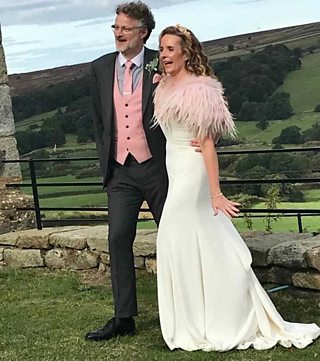
Kate and Guenther met in 1989 when they were both on holiday in Devon. They fell in love instantly. When he had to go home to Germany they visited each other and kept in touch by letter. But they couldn’t find a way to be together.
Kate describes telling Guenther she couldn’t move to be with him as, “the hardest decision of my life”. After another two years of heartbroken correspondence, they lost touch.
Three decades later, Kate found Guenther’s letters buried in a cupboard, and the memories came flooding back. “I sobbed and sobbed and sobbed,” she remembers. “I just thought, ‘this wonderful man, I broke his heart and he didn't really know why.’” She found the address of Guenther’s family business and wrote to him, with no idea if he would reply.
He did. “It was the 22nd of November at 12:36 precisely, and the phone goes, and I saw Germany and my heart just leapt,” Kate recalls. They spoke for hours, and within weeks Guenther was flying to Manchester to meet her. He says, “I saw her and it was like we never parted.”
Now, Kate and Guenther are married, after he proposed to her atop a mountain they had first climbed together 30 years earlier. “You don't often get a second chance. I look at him every single day, I don't regret anything,” Kate says. Guenther agrees: “I will never let her go again.”
More from Sideways
-
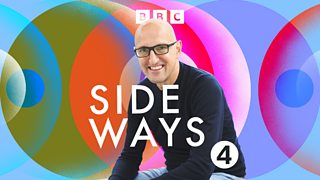
First Loves
Matthew Syed finds out why our first loves can hold a special place in our hearts.
-

Is it time to embrace your inner villain?
Do you think you're too nice and could it be holding you back? Matthew Syed investigates.
-

China's Ping Pong Power
Former Olympic table tennis player Matthew Syed tells a history of modern China through its most enduring sport.
-
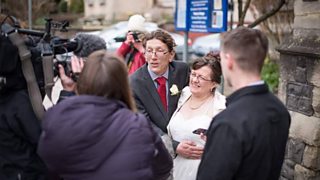
How one act of generosity can have profound consequences
My last 5p: How one homeless man’s generosity led to him marrying the love of his life.
